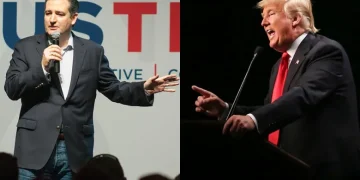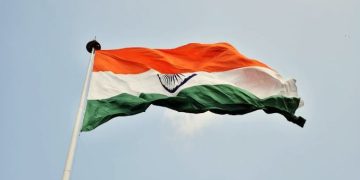Shreya Tewari & Ashirbad Nayak
In India, over the past few years, availing basic utilities has become increasingly reliant on access to the Internet. The pandemic has aggravated this dependency drastically. Citizens look to the Internet to meet their every need, ranging from groceries to medicines. Online platforms like Instagram and Twitter have been used to gather information about lifesaving drugs, oxygen cylinders and hospital beds. While offline options are available for most services, albeit being the riskier alternative considering the highly infectious and aberrant nature of the virus, leading the public to opt for the online options. Arguably the most urgent service for Indian citizens between 18 and 45 years of age today is availing the COVID-19 vaccines and it has become incumbent entirely upon smartphones, electricity and Internet access.
As things stand today, the only effective mechanism for the people aged 18 to 45 to book vaccination slots is through prior registration on the online CoWin portal or the AarogyaSetu app. While the Ministry of Health recently noted that it would enable walk-in vaccine registrations at government-run vaccination centres, this has still been made out to be the exception and not the norm. Resultantly, Indians are being forced to play a game of fastest-clicker-first while registering for the limited slots on the online platforms. These woes are compounded by the lack of vaccination slots, which are exhausted in seconds, due to larger issues of vaccine availability. However, the bigger picture being overlooked amidst all the glitches and chaos surrounding online registration is that making the vaccine available to citizens through the Internet deprives equitable access to a majority of India.
Let us look at this more in detail. India has the cheapest Internet service in the world, in spite of which, a majority of the population either does not have access to it or cannot afford it. Unfortunately, people who fall in this category are most often from the economically weaker sections of the society – people who undertake lower-paying jobs in urban areas for sustenance, and people in rural India. The lack of space for proper social distancing, the unaffordability of medical resources, if infected, and the urgency of migration in order to continue meeting basic sustenance needs make this section of the society more vulnerable to the virus. In addition to being at high risk, their situation is more precarious as they are deprived of equitable vaccine access due to unaffordability of a smartphone and Internet.
Alongside the economic inaccessibility, another important factor making online vaccine registration problematic is the lack of Internet infrastructure in India. Large swathes of India remain without telecommunication facilities and an even larger portion is without regular electricity. Expecting people in such areas to book the occasionally available slots, through the non-existent Internet connection in their region, on electronic devices (which they may not have) seems like a big ask.
The landmark case of Anuradha Bhasin vs Union of India in January 2020 witnessed the Supreme Court reading access to the Internet within the ambit of the fundamental right to freedom of speech and expression. The Apex Court also noted that Internet access cannot be denied to citizens indefinitely and disproportionately. Even so, the government has called for over 180 Internet shutdowns over the last year, which is more than any other country in the world. While there are various socio-economic and human rights implications of this common practice, it also has a heavy impact on the ability of citizens between 18 and 45 years of age to register online for receiving COVID vaccinations, particularly parts of India such as Jammu and Kashmir which have witnessed repeated Internet shutdowns. This coupled with Internet infrastructural issues in various rural and remote parts of the country that toughen various citizens’ ability to ‘get online’ have led to various inaccessibility concerns.
This digital divide has been highlighted several times by the Supreme Court, most recently by Justice Chandrachud in the case of Manisha Chauhan vs Government of Delhi NCT. Justice Chandrachud, who is also the Chairman of the e-committee of the Supreme Court, flagged other issues with the mandatory online registration such as lack of digital literacy. He asked the vaccination policy-makers to keep their ear to the ground and noted that the improvements in digital literacy fall short of penetrating a vast majority of India. With this in mind, a vaccination policy exclusively relying on an online application for vaccinating a significant population of India would be ‘unable to meet its target of universal immunisation’ and leave the marginalised sectors to bear the brunt of this accessibility barrier.’
India, just like the rest of the world, is still finding its feet in rolling out a vaccine policy that is inclusive, widely accessible and effective. However, for a country that has carried out various successful vaccine campaigns in the past, including the much-lauded polio vaccination scheme, the mandatory use of technology for COVID vaccination is turning out to be more of an obstacle than an enabler. It may be beneficial to put such a tech-reliant policy on hold until there is the requisite infrastructure in place, physically, socially, economically and politically, that allows for such heavy reliance to be placed on the Internet for access to vital and lifesaving services like COVID vaccination. Continued flexibility in India’s vaccine policy is warranted and will be beneficial when considering the strategy best suited to make the vaccines accessible to all citizens, regardless of economic background and geographical placement.
Shreya Tewari is a Research Fellow at Berkman Klein Center at Harvard Law School. Ashirbad Nayak is a Legal Researcher and incoming LLM candidate at the University of Cambridge.






































